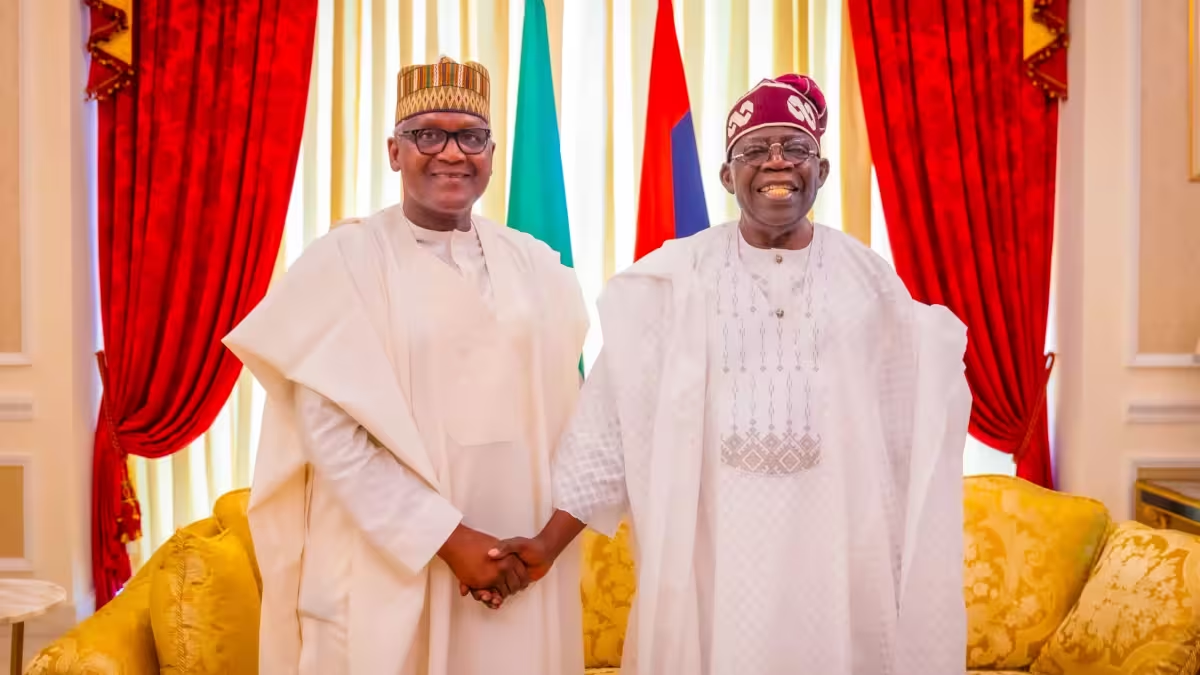Aliko Dangote, an iconic figure in African entrepreneurship, has built an empire that extends far beyond Nigeria’s borders. Starting from a modest family business in Kano, he has diversified his activities to become the continent’s wealthiest individual. His group, with interests in cement, agribusiness, and real estate, employs tens of thousands and significantly contributes to the Nigerian economy. As a true industrial powerhouse, Dangote has thrust Nigeria onto the international stage, attracting investors and positioning the country as a major economic player in Africa.
However, Dangote’s latest pharaonic project, a mega-refinery intended to revolutionize Nigeria’s oil sector, is facing obstacles that raise questions about the future of this colossal investment and the forces that seem to oppose it. This situation highlights the challenges visionary entrepreneurs face in a complex economic and political environment.
An Industrial Giant Facing an Oil “Mafia”
The Dangote refinery, inaugurated in January with the ambition of transforming Nigeria from an importer to an exporter of fuels, is struggling to meet its objectives. Designed to produce 650,000 barrels per day, it currently refines only about 300,000, according to estimates. Difficulties in sourcing local crude oil and accusations regarding the quality of the fuel produced cast a shadow over this $20 billion project.
Faced with these challenges, Aliko Dangote pulls no punches. He denounces the existence of a “mafia” in the oil sector, which he considers “worse than the drug mafia.” According to him, this cabal operates with the complicity of insiders, seeking to sabotage his refinery’s efforts to solve Nigeria’s chronic fuel shortage problem. These accusations, if proven true, would reveal the magnitude of the interests at stake and the resistance to change in a sector vital to the Nigerian economy.
A Patriot to Support Against Headwinds
Despite the obstacles, Aliko Dangote remains a valuable asset for Nigeria. His journey and achievements illustrate the potential of local entrepreneurship to transform the country’s economy. The refinery, in particular, represents a hope for energy sovereignty not only for Nigeria but for all of West Africa. By seeking to reduce dependence on fuel imports, Dangote is tackling a problem that has undermined the Nigerian economy for decades.
Nigerians have every interest in supporting this initiative. If the refinery manages to overcome its initial difficulties, it could generate thousands of jobs, stimulate the local economy, and improve the country’s trade balance. Moreover, the success of this project would send a strong signal to potential investors, demonstrating Nigeria’s ability to carry out industrial projects of global scale.
The maneuvers aimed at hindering the operation of the Dangote refinery are not just an attack against a businessman but against the economic interests of Nigeria as a whole. The support of the population and authorities for this project could be crucial in countering the forces seeking to maintain the status quo in the oil sector.
Ultimately, the story of Dangote and his refinery illustrates the inherent challenges in a country’s economic transformation. Between national ambitions and sectoral resistance, Nigeria finds itself at a crossroads. The fate of this project could well determine not only the future of the Nigerian oil sector but also the country’s ability to attract and support the major investments necessary for its development. In this economic and political battle, supporting the visionary Aliko Dangote could prove crucial for Nigeria’s future.
Articles similaires
- → Africa: Trump plans to close american embassies and consulates
- → Nigeria: Western Companies Replaced by Asian and Local Firms
- → Ghana: This Alarming Statistic on Child Labor
- → Nigerian university student fatally electrocuted while using charging phone
- → Nigeria sanctions Facebook to protect its population
- → USA: Death of actress Shannen Doherty, star of "Beverly Hills 90210"

